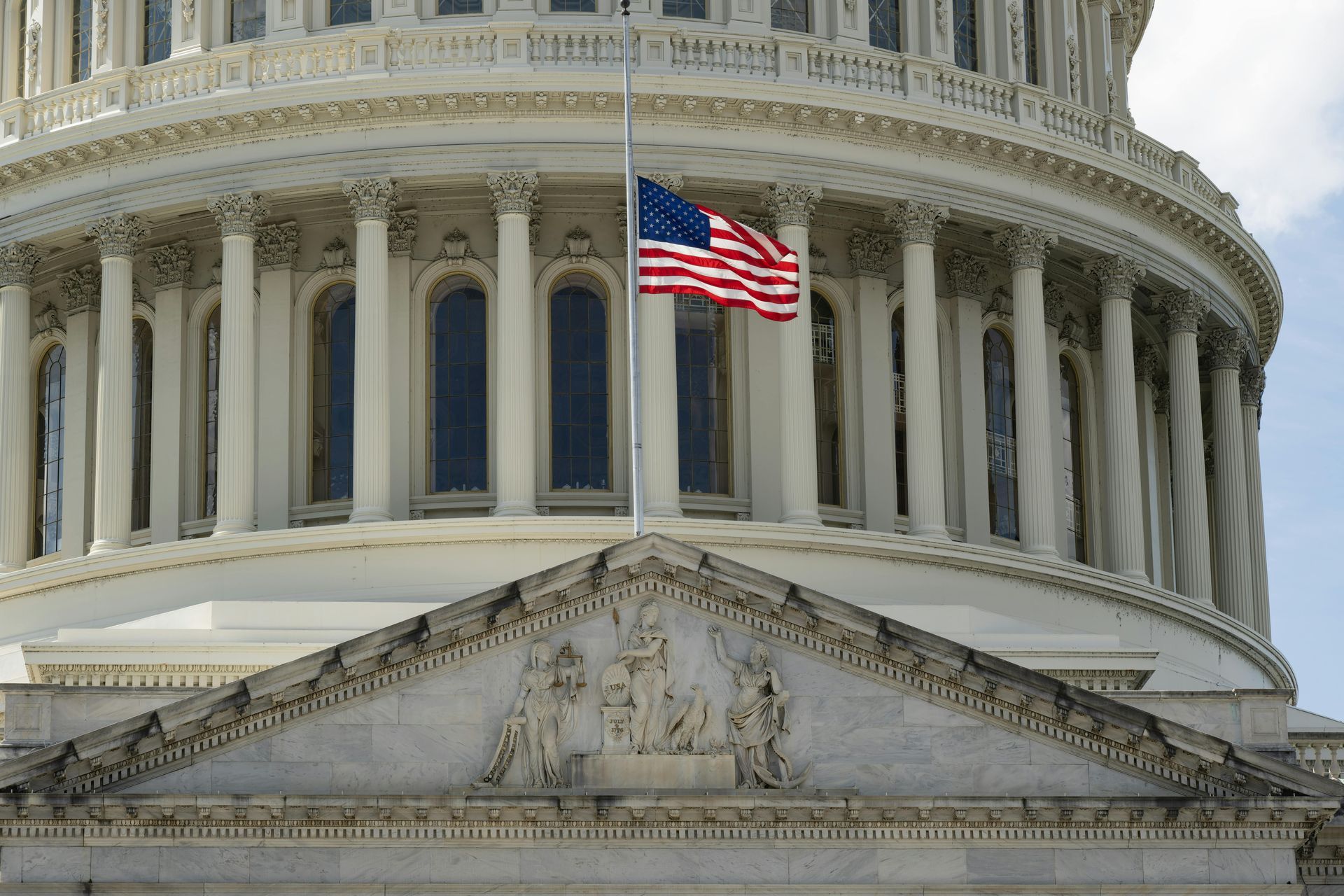Eu devo pedir por um visto de atleta?
Eduardo Mattos • March 2, 2023
O visto de atleta (P-1A)
permite que você venha e permaneça nos Estados Unidos para participar em eventos esportivos. Você não precisa necessariamente de um visto P-1A para competir na maioria das competições. Entretanto, caso você esteja pensando seriamente em uma carreira e os Estados Unidos faça parte de um papel importante no seu esporte, então você deve definitivamente considerar aplicar para um visto P-1A.
Uma vez que os vistos B-1 ou o B-2 (negócios/turismo) não permitem que a permanência seja superior a seis meses, e a renovação pode ser arriscada, uma vez que pode causar mais males do que bem para a sua carreira.
Vamos dizer que você se demite do seu trabalho, treine duro, e venha competir em uma grande competição nos Estados Unidos. Você se sai bem na competição, conhece um monte de gente legal, e tem a oportunidade de ficar no país treinando com os atletas, academias e técnicos de mais alto nível. Você sente que está ajeitado nos Estados Unidos. Você pode fazer isso com um visto B1/B2, mas apenas por seis meses. Você pode tentar estender a sua permanência, o que é possível de ser feito, mas muitas vezes isso é negado, e você precisará deixar os Estados Unidos e retornar para o seu país natal ou se tornar uma pessoa sem status, sem muito futuro nos Estados Unidos.
Uma outra alternativa é aplicar para um visto para estudante (F1) status. Estudar é sempre bom! Entretanto, a maioria dos atletas que conhecemos não querem nada a ver com isso e preferem focar o seu dinheiro, tempo e energia em aperfeiçoar-se no esporte. Eles não querem pagar por aulas e comprometer uma boa parcela de tempo dentro de uma sala de aula fingindo que se importam. Além disso, o visto seria cancelado se a pessoa parasse de comparecer às aulas.
Com o visto P1-A, você não precisa se preocupar com a dor de cabeça e ansiedade que seria tentar a sorte com a USCIS a cada seis meses para renovar o B1/B2. Não vale a pena. E, você também não precisa pagar por escola e pode usar o seu dinheiro e tempo para trabalhar em ser um campeão.
Então, como alguém consegue um visto P1-A?
Primeiro, obviamente, você precisa ser um atleta
– alguém que devota a maior parte de seu tempo para treinar e se preparar para comparecer em competições. Você não precisa ser patrocinado ou o melhor, mas você precisa competir ativamente e idealmente estar no ranking. As competições que você participa precisam ser relevantes para o seu esporte, e os atletas devem possuir diferentes nacionalidades para participar.
Aém disso, você deverá demonstrar algum nível de conquistas e reconhecimento em seu esporte.
Você não precisa ser um campeão mundial, mas você não poderá ter o visto de atleta pela sua primeira ou segunda competição. Bons resultados passados e performances são importantes, especialmente quando pareado com alguma mídia que reconheça o seu esforço. Então, se você aparecer na internet, artigos, revistas, isso será extremamente útil no seu caso.
Agora que você sabe mais sobre o tema, você poderá decidir por si mesmo o que é melhor para você. Só nunca vá ilegal, ok? O Tio Sam não gosta disso.
Caso você tenha alguma pergunta sobre o que significa ter um visto de atleta para você, por favor, marque um horário para fazer uma consulta com um de nossos advogados!
Este blog não se destina a ser um aconselhamento jurídico e nada aqui deve ser interpretado como estabelecimento de uma relação cliente-advogado. Por favor, agende uma consulta com um advogado de imigração, antes de agir baseado em qualquer informação lida neste blog.
This Facebook widget is no longer supported.
Similar Posts

If you've made it to the United States as a culinary professional—perhaps on an O-1B visa that recognizes your extraordinary talent, or a P-3 visa for sharing your rich culinary heritage—congratulations! You’ve already proven yourself as a standout in your craft. But what if we told you that your journey doesn’t have to end when your temporary visa does? In fact, your current status could be the perfect stepping stone to something much more lasting: a green card through the EB-1A category. The EB-1A visa is a first-preference employment-based immigrant visa, designed for individuals with “ extraordinary ability ” in fields such as the arts, sciences, education, business, or athletics. And yes—culinary arts absolutely count. The key is demonstrating that your skills have risen to the very top of your field. If you've already gone through the O-1 or P-3 process, you're likely well on your way . Here’s the good news: much of the evidence used to obtain your O-1B or P-3 visa can be repurposed for your EB-1A petition . Awards, press features, expert testimonials, and proof of your work in prestigious kitchens or at cultural events—they're all valuable again. But what’s even more exciting is that everything you’ve accomplished while in the U.S. on your temporary visa—whether launching a signature tasting menu, starring in a food documentary, or leading culinary workshops—can now be used to further strengthen your case. According to USCIS, EB-1A applicants must meet at least three of ten criteria unless they’ve received a major internationally recognized award. These criteria include things like published material about your work, original contributions of major significance, high salary, and a critical role in distinguished organizations. For many chefs, especially those who’ve thrived in the U.S. hospitality scene, it’s absolutely achievable with the right guidance. What sets the EB-1A apart is that it does not require an employer sponsor . That’s right—you can self-petition! This means your culinary career can be as flexible and entrepreneurial as you want it to be, whether that means opening your own restaurant, expanding into media, or continuing to cook your way into America’s heart. Even better? It can be one of the fastest paths to a green card available. With premium processing, your I-140 petition can be adjudicated within just 15 business days. And if your country’s EB-1 visa category is current on the visa bulletin at the time of approval, you may be eligible to file your green card application immediately. This combination of speed, autonomy, and flexibility makes EB-1A an incredibly attractive next step in your immigration journey. At Santos Lloyd Law Firm, we love helping creative professionals take their next big step. If you’ve already wowed the world with your cuisine, the EB-1A may be your opportunity to stay and make your mark for good. Contact us today to find out if the EB-1A is the next right step for you!

The United States has long been a destination for the world’s most talented athletes—not only to compete at the highest level, but to access world-class training, coaching opportunities, and long-term career prospects. Whether on the field, in the ring, or across the chessboard, athletes from across the globe are finding immigration pathways that allow them to pursue their athletic and professional goals in the U.S. U.S. immigration law offers several visa and green card options designed specifically for individuals with extraordinary athletic talent. These include the P-1A visa for internationally recognized athletes, the O-1A visa for individuals of extraordinary ability, and the EB-1A immigrant petition, which can lead to permanent residency and ultimately, U.S. citizenship. The P-1A visa is commonly used by professional athletes coming to the U.S. to compete in a specific event or season. This applies not only to individual athletes but also to members of teams or clubs recognized internationally. It is widely used by soccer players, basketball players, MMA fighters, Brazilian Jiu-Jitsu competitors, and even elite chess players. Athletes must demonstrate a high level of international recognition and a record of performance in their sport. The O-1A visa is a strong option for coaches who demonstrate extraordinary ability, typically evidenced by championship titles, sustained winning records, or recognition as integral to their team’s success. To qualify, a coach must establish that their expertise places them among the small percentage of top professionals in their field. For athletes seeking permanent status in the U.S., the EB-1A immigrant petition —often referred to as the “extraordinary ability green card”—provides a direct path to lawful permanent residency. It requires clear documentation that the individual is among the very best in their sport and has achieved sustained national or international success. Unlike other green card categories, the EB-1A does not require employer sponsorship and can be self-petitioned. This has become a common path for MMA world champions, BJJ black belt medalists, Olympic athletes, and chess grandmasters—many of whom now represent the U.S. at the highest levels of international competition. It’s important to note that U.S. immigration law defines “athlete” broadly. Whether you are a professional football player in Europe, a sprinter from the Caribbean, a judoka, a gymnast, or a grandmaster in chess, your achievements may qualify under these categories if they are properly documented and presented. The key is a consistent record of excellence and recognition in your sport on a national or international scale. Our office specializes in these types of immigration matters. Whether you are an individual athlete looking to relocate or an organization seeking to bring international talent to your roster, we offer tailored legal strategies to support your goals. If you are exploring options to compete, train, or build your future in the U.S., we’re here to help you take the next step.

The federal government entered a partial shutdown on January 31, 2026, after Congress failed to pass a final funding package. While this follows the record-breaking 43-day shutdown from last fall, this disruption is expected to be brief, with a House vote anticipated for the first week of February. However, as of February 2, several key departments are operating under shutdown contingencies. If you are an employer or a foreign national, here is what you need to know about how this affects your immigration matters: Impacts for Employers Certified LCAs: The Department of Labor (DOL) has suspended the processing of Labor Condition Applications. This means employers cannot currently obtain the certifications required to file new H-1B, H-1B1, or E-3 petitions. PERM and Prevailing Wages: Processing for PERM labor certifications and prevailing wage determinations has halted. This will likely cause a backlog once the government reopens. E-Verify: The E-Verify system is typically taken offline during a shutdown. Employers should continue to follow I-9 requirements but may be unable to resolve Tentative Nonconfirmations (TNCs) until the system is restored. Impacts for Employees and Families Consular Services: While U.S. embassies and consulates are fee-funded, their operations may be reduced. If you have an upcoming visa interview, check the specific consulate's website for status updates, as delays are possible. USCIS Operations: Because USCIS is primarily funded by application fees, it remains open. You should still attend scheduled interviews and biometrics appointments unless notified otherwise. CBP and Travel: U.S. Customs and Border Protection (CBP) functions are essential. Ports of entry remain open, though you may experience longer waiting times due to staffing adjustments. At Santos Lloyd, we are closely monitoring the situation as it unfolds. Whether you are an employer seeking guidance on how this shutdown impacts your hiring plans or an employee with general questions regarding if or how you may be affected, please reach out to our office. We remain dedicated to providing the updates and professional assistance necessary to help you navigate these disruptions.

U.S. Citizenship and Immigration Services (USCIS) has announced a major change to the H-1B cap selection process. Under a final rule issued on December 29, 2025, USCIS will replace the long-standing random H-1B lottery with a wage-weighted selection system that favors higher-paid and more complex positions. The rule is scheduled to take effect on February 27, 2026 , just ahead of the fiscal year 2027 H-1B cap registration season, unless delayed by legal challenges. If implemented, USCIS is expected to release additional guidance explaining how employers must submit registrations under the revised process. This change marks one of the most significant reforms to the H-1B program in recent years. Up until 2025, all registrations were treated equally once the annual cap was reached. Under the new system, selection odds will be tied to wage levels based on the U.S. Department of Labor’s Occupational Employment and Wage Statistics data. All H-1B registrations will still be placed into a single selection pool, but registrations tied to higher wage levels will receive multiple entries into that pool, increasing their likelihood of selection. Lower wage levels will receive fewer entries, making selection less likely but not impossible. H-1B wage levels are not determined solely by salary. Each wage level reflects the complexity of the job, the level of responsibility involved, and the education and experience required . Entry-level positions involving routine duties and close supervision are generally classified at the lowest wage level, while positions requiring independent judgment, advanced skills, and significant responsibility fall into higher wage levels. The highest wage level is reserved for roles that involve expert knowledge, strategic decision-making, and substantial leadership or technical authority. USCIS is expected to closely scrutinize selected petitions to ensure that the wage level claimed during registration is supported by the job duties and salary offered in the petition. Any discrepancies between the registration and the petition may result in requests for evidence, denials, or enforcement action. With the elimination of the purely random lottery, employers should begin preparing early by carefully evaluating job descriptions, wage levels, and overall H-1B strategy. Accurate classification and thoughtful planning will be essential under this new wage-based selection system. If you are an employer considering H-1B sponsorship, or a foreign professional wondering whether your position may qualify under the new wage-based system, consulting with experienced immigration counsel is more important than ever. Santos Lloyd Law is actively advising clients on H-1B cap registrations and strategy under the new rules. To discuss your options or determine whether you may qualify, contact our office to schedule a consultation.

During the recent administration there has been an increase in issuance of Requests for Evidence for EB-1A petitions for those of Extraordinary Ability. A Request for Evidence is a request that is made by USCIS that should explain how the evidence is deficient in proving the criteria argued and what additional evidence needs to be provided by the applicant to meet the criteria. EB-1A petitions are already normally subject to higher scrutiny because their approval is the first step needed to apply for Lawful Permanent Residence or a green card. USCIS normally requires not just evidence but that the evidence be provided with context and information to show why it matters in a particular field. For example, if you were providing evidence of your membership in an organization that requires outstanding achievements of its members, just providing evidence of the membership is not enough. You must explain what that membership is and provide background information on the organization granting the membership. You also need to provide evidence on the criteria that is used to select the members, information on those who select the members to show that they are recognized experts, other documentation such as articles about the membership organization to show its importance, and any other relevant evidence and background information to show that the criteria is met. A request for evidence being issued prior to the current administration was not uncommon, but in the current climate it is more surprising to not receive a request for evidence for this type of case. It is important to remember that a request for evidence is not a denial. Depending on the validity of the information in the request and the substance some Requests for Evidence can be overcome, and the case be approved. It is important to carefully review the request and note if there are any errors in the content and application of the regulations by USCIS. If you have an attorney, you should work with them and make sure that you provide any evidence you think may be helpful. Although there is a deadline by which a response must be submitted, attention to detail and patience will go a long way when dealing with having to respond to a request for evidence. If you believe you may qualify for this type of visa, please feel free to contact our office.



